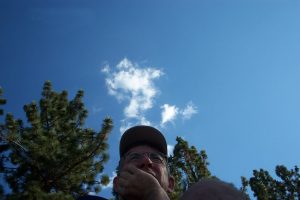Hi, I’m Chris Wood and this is my blog. Welcome! I started this in June 2016. I had thought about writing a blog for a long time but never got one started. In November 2015 my younger son Zach was killed. For five years before his death he had kept a journal that ran to about 75,000 words a year. Zach had mentioned it to me but I had never read any of it.
After his death I had access to all his writing and was humbled not only by the sheer magnitude but also the simple style and direct honesty he used. I don’t think he ever intended it to be read by anyone else. I don’t even think he intended to ever go back and read it again himself. He called it a ‘brain dump.’
My goal with this blog is not just to tell stories about Zach. It’s stories about Sepi and Jeremy and Sarah and Rosalie and lots of other people that are part of my life as well as some of the fevered thoughts running around my brain. That’s pretty much what I had envisioned all those years, but Zach is now my inspiration. His work ethic among his friends in Baton Rouge was legendary. So, my inspiration to write.
In the menus above you can follow the link to my most recent posts. Each post has a category and one to several ‘tags’. You can follow any of those links to more posts with those subjects. There is also a page with the ‘tag cloud.’ Each word or phrase in the tag cloud is a link to posts I have made with those subjects. The larger the word or phrase, the more often I have used it. Poke around in there for what interests you. Down at the bottom there is a search window and a calendar that shows when I’ve posted. There are also links to my posts by month. Lots of ways to look around!
I welcome any comments that are made in a positive spirit. That is, you can be critical, but be nice about it. I have to approve your first comment before it will be published but after that, they’ll go right in.
For an introduction to Zach, follow the menu link to ‘Zach Basics.’ To know more about me, read on!

(photo by Sarah, 2006.)